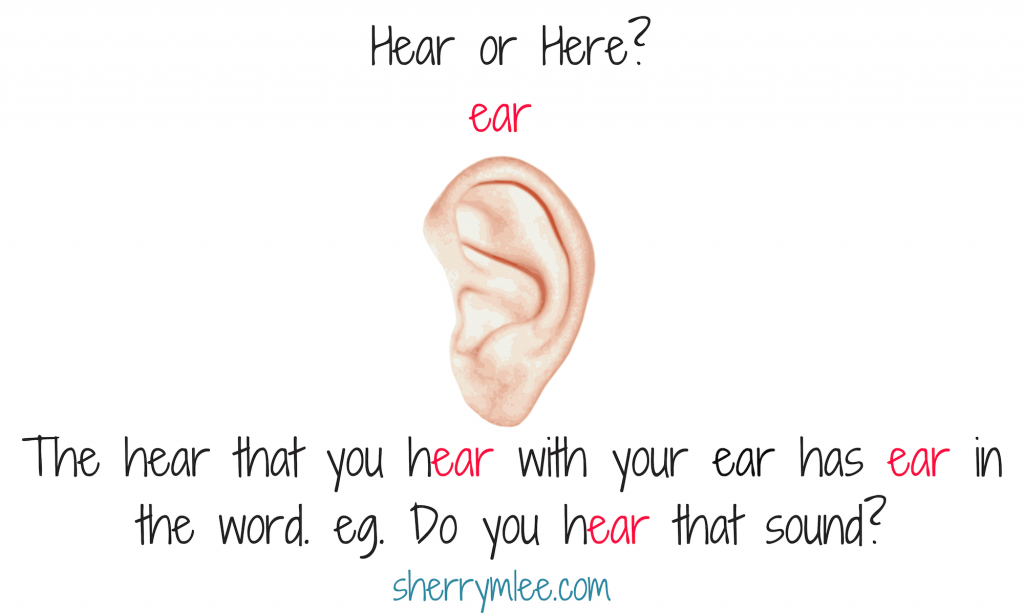

Priceįor questions, you can go to Visit Leuven from 10:00 to 17:00. They can be especially confusing in a phrase like hear, hear, which is spoken aloud but rarely written down. That means they are homophones, and as we’ve mentioned once or twice, homophones are easy to confuse. The obvious reason is that the verb hear and the adverb here are pronounced the same. This ‘earcatcher’ is located on the Grote Markt and invites you to listen consciously to the sounds of the city. Hear, hear is often confused with here, here. Earcatcher Pieter JanssensĮspecially for Hear Here, visual artist Pieter Janssens from Leuven created a public listening sculpture.

#Hear hear or here here free
The guide is free and available at the start at Visit Leuven in the Town Hall and at the various indoor locations. Visiting Hear Here with kids? Then don’t miss our children’s guide (in Dutch). Most of the locations are wheelchair accessible unless otherwise noted in the info about the works. You cannot go from Naamsestraat to Schapenstraat by bike via Van Dalepark (stairs), instead go via Ramberg. You can also do it by bike, which will take approx. If you do not have time for the whole parcours, you can also choose one of the 3 ‘districts’: Centrum - Kruidtuin - Vaartkom. 2,5 à 3 hours (including visit to the installations). Hear verb To attend, or be present at, as hearer or worshiper as, to hear a concert to hear Mass. You can also use the interactive map on this website. To give audience or attention to to listen to to heed to accept the doctrines or advice of to obey to examine to try in a judicial court as, to hear a recitation to hear a class the case will be heard to-morrow. Maps are available at the start at Visit Leuven in the City Hall or at the various locations. M Leuven: Closed after 18:00 & on WednesdayĪnatomical Theater: Closed on Monday 6 June Monday 6 June: parcours open, except for Anatomical Theater Yet, in spite of all the changes to this distinct expression from its initial purpose, one aspect endures: the correct verbiage remains “hear, hear” not “here, here”.14:00 → 19:00* (closed on Monday & Tuesday) Once reserved for a larger assemblage, this phrase now extends to use in small groups and even in casual one-on-one conversations. Another popular application occurs during celebrations, whereby a person giving a toast may call “hear, hear” as a cheer to an honoree, and guests will respond back with an exuberant, “hear, hear”. A person concurring with a statement may declare, “hear, hear”, thus voicing concordance and approval. Instead of summoning an audience to observe the beginning of a lecture, these words now commonly signify support or agreement. Similar to the actual parlance of “hear, hear” metamorphosing over time, the connotation in modern vernacular likewise experienced a shift. Although frequently misspelled or misspoken as “here, here”, the provenance of the saying and its evolution through time confirm the words “hear, hear” as the proper way to employ this phrase. Other ways of expressing this locution included “hear him, hear him”, or even “hear her, hear her.” Hundreds of years of utterance abbreviated the idiom to the recognizable “hear, hear” still used in contemporary language. This particular sequence of words originally called attention to an orator and encouraged boisterous gatherers to listen to the featured speaker. Dating as far back as the seventeenth century, the familiar phrase “hear ye, hear ye” appeared in various types of literature and rang out in British Parliament meetings.


 0 kommentar(er)
0 kommentar(er)
